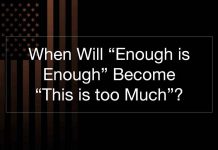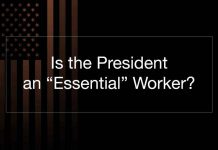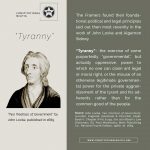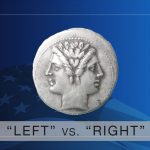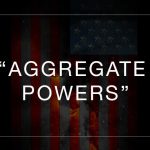Last Updated on October 2, 2021 by Constitutional Militia
Second, if the Board of Governors and the Federal Reserve regional banks are to be “abolish[ed]”, so too must Federal Reserve Notes disappear. For “Federal reserve notes, to be issued at the discretion of the Board of Governors of the Federal Reserve System for the purpose of making advances to Federal reserve banks * * * and for no other purpose, are authorized”; and only “[t]he Board of Governors * * * shall have the right * * * to grant in whole or in part, or to reject entirely the application of any Federal Reserve bank for Federal Reserve notes”. 12 U.S.C. §§ 411 and 414. (Conversely, if Federal Reserve Notes are to be retained, the Board and the Federal Reserve regional banks must continue in operation as the mutually complementary sources of those Notes.) Federal Reserve Notes, however, make up the great bulk of the circulating currency of the United States. The questions then arise: If Federal Reserve Notes were “abolish[ed]” as the necessary consequence of “abolish[ing]” those components of the Federal Reserve System which could be “abolish[ed]” (that is, the Board of Governors and the Federal Reserve regional banks), then what currency would most Americans use in their day-to-day commercial and other private transactions? And in what currency would taxes and other public dues, and various governmental expenditures, be paid at every level of the federal system?
D. Some individuals argue that, in order to reinstate sound money in this country’s economy, it would not be necessary to “abolish the Fed”, as long as Congress repealed the statute which provides that “United States coins and currencies (including Federal reserve notes and circulating notes of Federal reserve banks and national banks) are legal tender for all debts, public charges, taxes, and dues”. 31 U.S.C. § 5103. Were this provision stricken from the United States Code, these people contend, anyone could use any currency for the payment of debts; and everyone (in the exercise of rationality) would sooner or later take advantage of that freedom to choose currencies more stable than Federal Reserve Notes. The ensuing competition among currencies would work a reversal of Gresham’s Law, in the long run driving Federal Reserve Notes out of general circulation. This notion, unfortunately, is ill informed.
In law and fact, today no one is required to employ only Federal Reserve Notes as “legal tender” in any private contract. Anyone can contract for payment in any legitimate currency, including gold and silver, to the absolute exclusion of Federal Reserve Notes. Confusion arises on this score because many Americans seem to be possessed by the notion that Congress has outlawed so-called “gold-clause contracts”. Indeed, Congress did so in 1933. But that prohibition has been set aside with respect to private obligations issued after 27 October 1977. See 31 U.S.C. § 5118(a) and (d). And the States cannot disable themselves from entering into enforceable “gold-clause contracts”. See U.S. Const. art. I, § 10, cl. 1. (But the government of the United States has statutorily crippled itself in that regard. See 31 U.S.C. 5118(b) and (c).)
The problem with competition among currencies for private parties and the States is that, in order to take advantage of economically sound and constitutional currencies as alternatives to Federal Reserve Notes, Americans must have at hand mechanisms which will enable them to employ those currencies efficiently in their day-to-day transactions within the free market and with the States’ governments. Such mechanisms do not now exist to any worthwhile extent. The “member banks” in the Federal Reserve System, for example, do not provide their customers with the option of opening “gold accounts” or “silver accounts” through which ownership of aliquots of precious metals can be transferred from one account-holder to another by checks, electronic transfers, and so on, in the same manner as Federal Reserve Note balances. Until the “member banks” do provide that option, or States in significant numbers establish gold and silver depository-banks of their own (as Texas is doing), no real competition between gold and silver, on the one hand, and Federal Reserve Notes, on the other hand, can take place.
E. In the absence of gold and silver currencies circulating side-by-side with Federal Reserve Notes in open and fair competition, Americans are compelled by circumstances to depend upon those Notes (and bank-deposits payable therein) as their only practical currency. So, if the Federal Reserve System should collapse, and Federal Reserve Notes should become next to worthless through hyperinflation, America’s economy would tumble into the black pit of chaos. The Globalist International is, of course, preparing for that eventuality—and may even be plotting to bring it about during the first years of the Trump Administration. However such chaos may arise, when it does the Globalist International, through the International Monetary Fund or some other monetary machinery of “the new world order”, will impose upon this country a new fiat currency—controlled, of course, by the Globalist International. This will shackle Americans more tightly to “the new world order” than ever they have or could have been chained through the Federal Reserve System.
In order to avoid this dire fate, the Trump Administration must set competition among currencies in motion well before the present economic crisis degenerates into a full-blown monetary and banking catastrophe which prevents such competition from even starting. With the benefit of contemporary computer technology, it would be easy enough, through a gradual process mediated by the free market, to establish economically sound and constitutional alternative currencies of gold and silver as viable competitors against Federal Reserve Notes. In the short term, the introduction of such alternative currencies would to a large degree obviate, or at least mitigate, the immediate danger that a collapse of the banking system could (almost surely would) leave Americans with no functioning currency at all, until the Globalist International proffered one at the cost of this country’s sovereignty. In the long run, the introduction of such alternative currencies would bring the full force of the free market to bear against the Federal Reserve System, leading to its gradual self-abolition, as the “member banks” found themselves compelled by economic pressures beyond the Globalist International’s ability to resist to replace Federal Reserve Notes with the alternative currencies as their customers’ preferred media of exchange. And requiring the “member banks” to establish gold and silver accounts for their private customers and perhaps the States as well would not run afoul of the statutory prohibition in 31 U.S.C. § 5118(b) that “[t]he United States Government may not pay out any gold coin”, for the self-evident reason that neither the private “member banks”, nor the States, nor even the private Federal Reserve regional banks are “[t]he United States Government”.
F. My NewsWithViews commentary “Presidential Questions” describes how a patriotic President could use 12 U.S.C. § 95(a) to compel the banks in the Federal Reserve System to make sound and constitutional alternative currencies available to their customers. (The same statute could also be employed, for example, to require the banks to abide by the principles of the Glass-Steagall Act; to punish financial gambling by compelling the banks to write off many of the fantastic “derivatives” on their books as the unenforceable wagers they really are; to impose accountability on the extremely dangerous profession of central banking by passing through from the banks as institutions to their officials as individuals the responsibility to make up the losses their customers may suffer from the banks’ negligence or intentional wrongdoing; and even to prohibit the banks from advancing the agenda of “gun controllers” through discrimination against businesses that deal in the firearms necessary to secure “the right of the people to keep and bear Arms” which the Second Amendment declares “shall not be infringed”.)
That, in the present economic and political circumstances confronting this country, 12 U.S.C. § 95(a) should be bent to those and other worthwhile purposes needs no elaborate explanation. It suffices to remind the readers of this commentary that, at the height of the monetary and banking crisis of the 1930s, Congress extended to President Franklin D. Roosevelt the authority now to be found in that statute, which mandates that,
[i]n order to provide for the safer and more effective operation of the National Banking System and the Federal Reserve System, to preserve for the people the full benefits of the currency provided for by the Congress through the National Banking System and the Federal Reserve System, and to relieve interstate commerce of the burdens and obstructions resulting from the receipt on an unsound or unsafe basis of deposits subject to withdrawal by check, during such emergency period as the President of the United States by proclamation may prescribe, no member bank of the Federal Reserve System shall transact any banking business except to such extent and subject to such regulations, limitations and restrictions as may be prescribed by the Secretary of the Treasury, with the approval of the President. Any individual, partnership, corporation, or association, or any director, officer or employee thereof, violating any of the provisions of this section shall be deemed guilty of a misdemeanor and, upon conviction thereof, shall be fined not more than $10,000 or, if a natural person, may, in addition to such fine, be imprisoned for a term not exceeding ten years. Each day that any such violation continues shall be deemed a separate offense.
What deserves emphasis is that, if President Trump hopes to defend his Administration successfully against dirty dealings, defiance, domination, and even destruction by the Globalist International, he must rein in the Federal Reserve System by employing in a determined, definitive, and decisive manner the very tools Congress provided to President Roosevelt. For no better tools are available. And he must act right now, not later on. The Globalist International will afford him no other option. He must, as it were, bite the bullet today, or else bite the dust tomorrow. All that is needed is for President Trump “by proclamation [to] prescribe” an “emergency period”, and to extend his “approval” to the necessary and sufficient “regulations, limitations and restrictions as may be prescribed by [his] Secretary of the Treasury”. Neither Congress nor the Judiciary need be called upon to take any action.
First, President Trump must seize the initiative—acting, rather than reacting. He cannot wait for the present economic crisis to burst forth in a cataclysm for which the “mainstream media” will unfairly but unrelentingly hold him personally accountable. Rather, he must unstintingly and unsparingly assign the blame for the hard times ahead to the individuals and institutions actually responsible for these troubles. The American people are entitled to know the malefactors’ names, to see their faces, and to review the rap-sheets that record their wrongdoing.
Second, President Trump must announce, in no uncertain terms, that his Administration will no longer tolerate privileged sanctuaries from which bankers and their cronies on Wall Street can launch future campaigns of financial aggression and looting against the American people, and then within which they can shelter from their impoverished victims’ legal and political retaliation, retribution, and justifiable demands for restitution. Under the Trump Administration, no banks, bankers, or Wall Street financial casinos and speculators can be deemed “too big to fail” or (especially) “too big to jail”. Or “too big to be subjected to constant and close surveillance” in order to deter failures born of negligence and to punish criminal offenses— for if average Americans who pose no conceivable threat to this country’s economy can be exposed to the NSA’s interminable probing into every last one of their innocuous e-mails, surely the operations of the bankers and speculators who have already gutted this nation’s economy through their incompetence and crooked deals, and absent strict supervision can be expected to continue to blunder and cheat, deserve no less microscopic examination.
Third, through the contemporary equivalent of President Franklin D. Roosevelt’s “fireside chats”, President Trump must go over the heads of the “mainstream media” to explain in detail to the American people what he is doing, why he is doing it, and especially the source of his authority for those actions.
Fourth, one may expect the bankers to whine that President Trump’s employment of legislation as draconian as 12 U.S.C. § 95(a) will disregard— indeed, will put paid to—the vaunted “independence” of the Federal Reserve System. That “independence”, however, is purely mythical. Under the Constitution, Congress could have licensed the Federal Reserve System to devise and put into effect “monetary policy” only if Congress enjoyed the power to set the terms of “monetary policy” itself. And Congress could not have delegated this power, in whole or in part, to the Federal Reserve System in such a manner that it could never rescind that delegation, in whole or in part, whenever and to whatever degree it saw fit. So the Federal Reserve System could never claim “independence” from Congress—or from the President, exercising the authority Congress extended to him in 12 U.S.C. § 95(a). Moreover, even if under color of some aberrant legal theory Congress could have purported to delegate its authority over “monetary policy” completely and irrevocably to the private banks in the cartel—a notion at war with the principles enunciated in the Supreme Court’s decision in A.L.A. Schechter Poultry Corporation v. United States, 295 U.S. 495, 529-537 (1935) (“[s]uch a delegation of legislative power [to private cartels] is unknown to our law and * * * utterly inconsistent with the constitutional prerogatives and duties of Congress”)—in fact it has never done so. Quite the contrary: Section 30 of the original Federal Reserve Act wisely provided that “[t]he right [of Congress] to amend, alter, or repeal this Act is hereby expressly reserved”. An Act To provide for the establishment of Federal reserve banks, to furnish an elastic currency, to afford means of rediscounting commercial paper, to establish a more effective supervision of banking in the United States, and for other purposes, Act of 23 December 1913, CHAP. 6, 38 Stat. 251, 275. And the terms of 12 U.S.C. § 95(a) make it pellucid that the latter statute is an amazingly foresightful exercise of the authority Congress so reserved.
Fifth and last, President Trump must premonish the bankers that, if they refuse to coöperate to their utmost in implementing “such regulations, limitations and restrictions as may be prescribed by the Secretary of the Treasury, with the approval of the President”, then one and all they will be held personally accountable under the statutory directive that “[e]ach day that any such violation continues shall be deemed a separate offense”. The bankers might rightly consider this the very zenith of bad news; but neither they nor their megaphones in the “mainstream media” would be able to dismiss it as “fake news”.
If President Trump passes this litmus test, then in the fashion of the Big Bad Wolf the Globalist International can huff and puff and threaten to blow America’s economic house down to its heart’s content. But, with 12 U.S.C. § 95(a) as a Sword of Damocles hanging over the bankers’ heads, Mr. Trump and “the Deplorables” whose welfare he has promised to champion can weather that storm of bluff and bluster, and lay the indispensable monetary groundwork to “make America great again”.
©2017 Edwin Vieira, Jr. – All Rights Reserved.




























